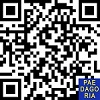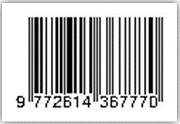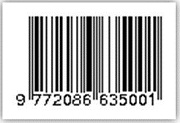DEVELOPING AUGMENTED REALITY FOR IMPROVING CONCEPT COMPREHENSION ON PHOTOGRAPHY LEARNING
Abstract
Keywords
Full Text:
PDFReferences
Al-Ansi, A. M., Jaboob, M., Garad, A., & Al-Ansi, A. (2023). Analyzing augmented reality (AR) and virtual reality (VR) recent development in education. Social Sciences and Humanities Open, 8(1), 100532. https://doi.org/10.1016/j.ssaho.2023.100532
Alyousify, A. L., & Mstafa, R. J. (2022). AR-Assisted Children Book For Smart Teaching And Learning Of Turkish Alphabets. Virtual Reality and Intelligent Hardware, 4(3), 263–277. https://doi.org/10.1016/j.vrih.2022.05.002
Arulanand, N., RameshBabu, A., & Rajesh, P. K. (2020). Enriched learning experience using augmented reality framework in engineering education. Procedia Computer Science, 172(2019), 937–942. https://doi.org/10.1016/j.procs.2020.05.135
Bacca, J., Baldiris, S., Fabregat, R., Kinshuk, & Graf, S. (2015). Mobile Augmented Reality in Vocational Education and Training. Procedia Computer Science, 75(Vare), 49–58. https://doi.org/10.1016/j.procs.2015.12.203
Bal, E., & Bicen, H. (2016). Computer Hardware Course Application through Augmented Reality and QR Code Integration: Achievement Levels and Views of Students. Procedia Computer Science, 102(August), 267–272. https://doi.org/10.1016/j.procs.2016.09.400
Bau, C. P. E., Olii, S., & Pakaya, N. (2022). Perbandingan Motivasi Belajar pada Mata Pelajaran Kimia Sebelum dan Sesudah Penerapan Media Pembelajaran Augmented Reality Chemistry. Journal of Information Technology Education, 2(1), 44–53. http://ejurnal.ung.ac.id/index.php/inverted
Bernsteiner, R., Probst, A., Pachatz, W., Ploder, C., & Dilger, T. (2023). Augmented Reality in Engineering Education – A Comparison of Students’ and Teachers’ Perceptions. Lecture Notes in Networks and Systems, 633 LNNS, 207–219. https://doi.org/10.1007/978-3-031-26876-2_19
Billett, S. (2023). Learning through work: augmenting vocational educational experiences to meet 21st-century work requirements. International Encyclopedia of Education(Fourth Edition), 452–461. https://doi.org/10.1016/B978-0-12-818630-5.02083-2
Blevins, B. (2018). Teaching Digital Literacy Composing Concepts: Focusing on the Layers of Augmented Reality in an Era of Changing Technology. Computers and Composition, 50, 21–38. https://doi.org/10.1016/j.compcom.2018.07.003
Bogdan, R., & Biklen, S. K. (2007). Qualitative research for education : An introduction to theories and methods (5th ed.). Pearson.
Boler, M., Trigiani, A., & Gharib, H. (2023). Media education: history, frameworks, debates and challenges. International Encyclopedia of Education(Fourth Edition), 301–312. https://doi.org/10.1016/B978-0-12-818630-5.08058-1
Braun, V., & Clarke, V. (2006). Using thematic analysis in psychology. Qualitative Research in Psychology, 3(2), 77–101. https://doi.org/10.1191/1478088706qp063oa
Bruner, J. S. (1961). The act of discovery. Harvard Educational Review, 31(1), 21–32.
Candido, V., Raemy, P., Amenduni, F., & Cattaneo, A. (2023). Could Vocational Education Benefit From Augmented Reality and Hypervideo Technologies? An Exploratory Interview Study. International Journal for Research in Vocational Education and Training, 10(2), 138–167. https://doi.org/10.13152/IJRVET.10.2.1
Chen, C. M., & Tsai, Y. N. (2012). Interactive augmented reality system for enhancing library instruction in elementary schools. Computers and Education, 59(2), 638–652. https://doi.org/10.1016/j.compedu.2012.03.001
Chiang, T. H. C., Yang, S. J. H., & Hwang, G. J. (2014). Students’ online interactive patterns in augmented reality-based inquiry activities. Computers and Education, 78, 97–108. https://doi.org/10.1016/j.compedu.2014.05.006
Coimbra, M. T., Cardoso, T., & Mateus, A. (2015). Augmented Reality: An Enhancer for Higher Education Students in Math’s Learning? Procedia Computer Science, 67(Dsai), 332–339. https://doi.org/10.1016/j.procs.2015.09.277
Creswell, J. W. (2013). Qualitative inquiry & research design: choosing among five approaches (3rd ed.). SAGE Publications, Inc.
Diaz, C., Hincapié, M., & Moreno, G. (2015). How the Type of Content in Educative Augmented Reality Application Affects the Learning Experience. Procedia Computer Science, 75(Vare), 205–212. https://doi.org/10.1016/j.procs.2015.12.239
Gao, S., Lu, Y., Ooi, C. H., Cai, Y., & Gunawan, P. (2023). Designing interactive augmented reality application for student’s directed learning of continuous distillation process. Computers and Chemical Engineering, 169(November 2022), 108086. https://doi.org/10.1016/j.compchemeng.2022.108086
Garzón, J., & Acevedo, J. (2019). Meta-analysis of the impact of Augmented Reality on students’ learning gains. Educational Research Review, 27(March), 244–260. https://doi.org/10.1016/j.edurev.2019.04.001
Georgiou, Y., & Kyza, E. A. (2018). Relations between student motivation, immersion and learning outcomes in location-based augmented reality settings. Computers in Human Behavior, 89, 173–181. https://doi.org/10.1016/j.chb.2018.08.011
He, X., & Li, L. (2024). Teaching optimization of virtual reality and augmented reality technology in vocational education. Journal of Computational Methods in Sciences and Engineering, 24(6), 3734–3747. https://doi.org/10.1177/14727978241297013
Ibáñez, M. B., Di Serio, Á., Villarán, D., & Delgado Kloos, C. (2014). Experimenting with electromagnetism using augmented reality: Impact on flow student experience and educational effectiveness. Computers and Education, 71, 1–13. https://doi.org/10.1016/j.compedu.2013.09.004
Kolb, D. A. (1984). Experiential learning: Experience as the source of learning and development. Prentice-Hall.
Koparan, T., Dinar, H., Koparan, E. T., & Haldan, Z. S. (2023). Integrating augmented reality into mathematics teaching and learning and examining its effectiveness. Thinking Skills and Creativity, 47(February), 101245. https://doi.org/10.1016/j.tsc.2023.101245
Kose, U., Koc, D., & Yucesoy, S. A. (2013). An augmented reality based mobile software to support learning experiences in computer science courses. Procedia Computer Science, 25, 370–374. https://doi.org/10.1016/j.procs.2013.11.045
Krüger, J. M., Palzer, K., & Bodemer, D. (2022). Learning with augmented reality: Impact of dimensionality and spatial abilities. Computers and Education Open, 3(October 2021), 100065. https://doi.org/10.1016/j.caeo.2021.100065
Li, M., Chen, Y. T., Huang, C. Q., Hwang, G. J., & Cukurova, M. (2023). From motivational experience to creative writing: A motivational AR-based learning approach to promoting Chinese writing performance and positive writing behaviours. Computers and Education, 202(August 2022), 104844. https://doi.org/10.1016/j.compedu.2023.104844
López-Faican, L., & Jaen, J. (2020). EmoFindAR: Evaluation of a mobile multiplayer augmented reality game for primary school children. Computers and Education, 149(January). https://doi.org/10.1016/j.compedu.2020.103814
Low, D. Y. S., Poh, P. E., & Tang, S. Y. (2022). Assessing the impact of augmented reality application on students’ learning motivation in chemical engineering. Education for Chemical Engineers, 39(February), 31–43. https://doi.org/10.1016/j.ece.2022.02.004
Nadzeri, M. B., Musa, M., Meng, C. C., & Ismail, I. M. (2023). Teachers’ Perspectives on the Development of Augmented Reality Application in Geometry Topic for Elementary School. International Journal of Interactive Mobile Technologies, 17(15), 38–52. https://doi.org/10.3991/ijim.v17i15.40097
Nurhasanah, Z., Widodo, A., & Riandi, R. (2019). Augmented reality to facilitate students’ biology mastering concepts and digital literacy. JPBI (Jurnal Pendidikan Biologi Indonesia), 5(3), 481–488. https://doi.org/10.22219/jpbi.v5i3.9694
Ou Yang, F. C., Lai, H. M., & Wang, Y. W. (2023). Effect of augmented reality-based virtual educational robotics on programming students’ enjoyment of learning, computational thinking skills, and academic achievement. Computers and Education, 195(December 2022), 104721. https://doi.org/10.1016/j.compedu.2022.104721
Paivio, A. (1986). Mental representations: A dual coding approach. Oxford University Press
Perifanou, M., Economides, A. A., & Nikou, S. A. (2023). Teachers’ Views on Integrating Augmented Reality in Education: Needs, Opportunities, Challenges and Recommendations. Future Internet, 15(1). https://doi.org/10.3390/fi15010020
Polkinghorne, D. E. (2006). An agenda for the second generation of qualitative studies. International Journal of Qualitative Studies on Health and Well-Being, 1(2), 68–77. https://doi.org/10.1080/17482620500539248
Radu, I., Huang, X., Kestin, G., & Schneider, B. (2023). How augmented reality influences student learning and inquiry styles: A study of 1-1 physics remote AR tutoring. Computers & Education: X Reality, 2(February), 100011. https://doi.org/10.1016/j.cexr.2023.100011
Rambli, D. R. A., Matcha, W., & Sulaiman, S. (2013). Fun learning with AR alphabet book for preschool children. Procedia Computer Science, 25, 211–219. https://doi.org/10.1016/j.procs.2013.11.026
Sampaio, D., & Almeida, P. (2016). Pedagogical Strategies for the Integration of Augmented Reality in ICT Teaching and Learning Processes. Procedia Computer Science, 100, 894–899. https://doi.org/10.1016/j.procs.2016.09.240
Syam, A. S., Ismail, W., & Ali, A. (2021). Media Augmented Reality Dan Power Point Serta Pengaruhnya Terhadap Motivasi Belajar Peserta Didik. Pendidikan Biologi, 4(2), 95–108. http://ejournals.umma.ac.id/index.php/binomial/article/view/1058
Syamsinar, S. (2022). Augmented Reality Media in Teaching English for Young Learner. Jurnal Studi Guru Dan Pembelajaran, 5(3), 272–277. https://doi.org/10.30605/jsgp.5.3.2022.2030
Takenaka, H., & Soga, M. (2019). Development of a support system for reviewing and learning historical events by active simulation using AR markers. Procedia Computer Science, 159, 2355–2363. https://doi.org/10.1016/j.procs.2019.09.410
Tiede, J., Grafe, S., & Mangina, E. (2022). Teachers’ Attitudes and Technology Acceptance Towards AR Apps for Teaching and Learning. Proceedings of 2022 8th International Conference of the Immersive Learning Research Network, ILRN 2022. https://doi.org/10.23919/iLRN55037.2022.9815918
Trista, S., & Rusli, A. (2020). Historiar: Experience indonesian history through interactive game and augmented reality. Bulletin of Electrical Engineering and Informatics, 9(4), 1518–1524. https://doi.org/10.11591/eei.v9i4.1979
Wa-Mbaleka, S. (2020). The Researcher as an Instrument. Advances in Intelligent Systems and Computing, 1068, 33–41. https://doi.org/10.1007/978-3-030-31787-4_3
Zuo, T., Birk, M. V., van der Spek, E. D., & Hu, J. (2023). The effect of fantasy on learning and recall of declarative knowledge in AR game-based learning. Entertainment Computing, 46(February), 100563. https://doi.org/10.1016/j.entcom.2023.100563
DOI: https://doi.org/10.31764/paedagoria.v16i3.31153
Refbacks
- There are currently no refbacks.
Copyright (c) 2025 A. Suci Rizky Ananda

This work is licensed under a Creative Commons Attribution-ShareAlike 4.0 International License.
Paedagoria : Jurnal Kajian, Penelitian dan Pengembangan Kependidikan
Fakultas Keguruan & Ilmu Pendidikan | Universitas Muhammadiyah Mataram.
_______________________________________________
 | Paedagoria : Jurnal Kajian, Penelitian dan Pengembangan Kependidikan |
______________________________________________
CURRENT INDEXING:
EDITORIAL OFFICE:


















